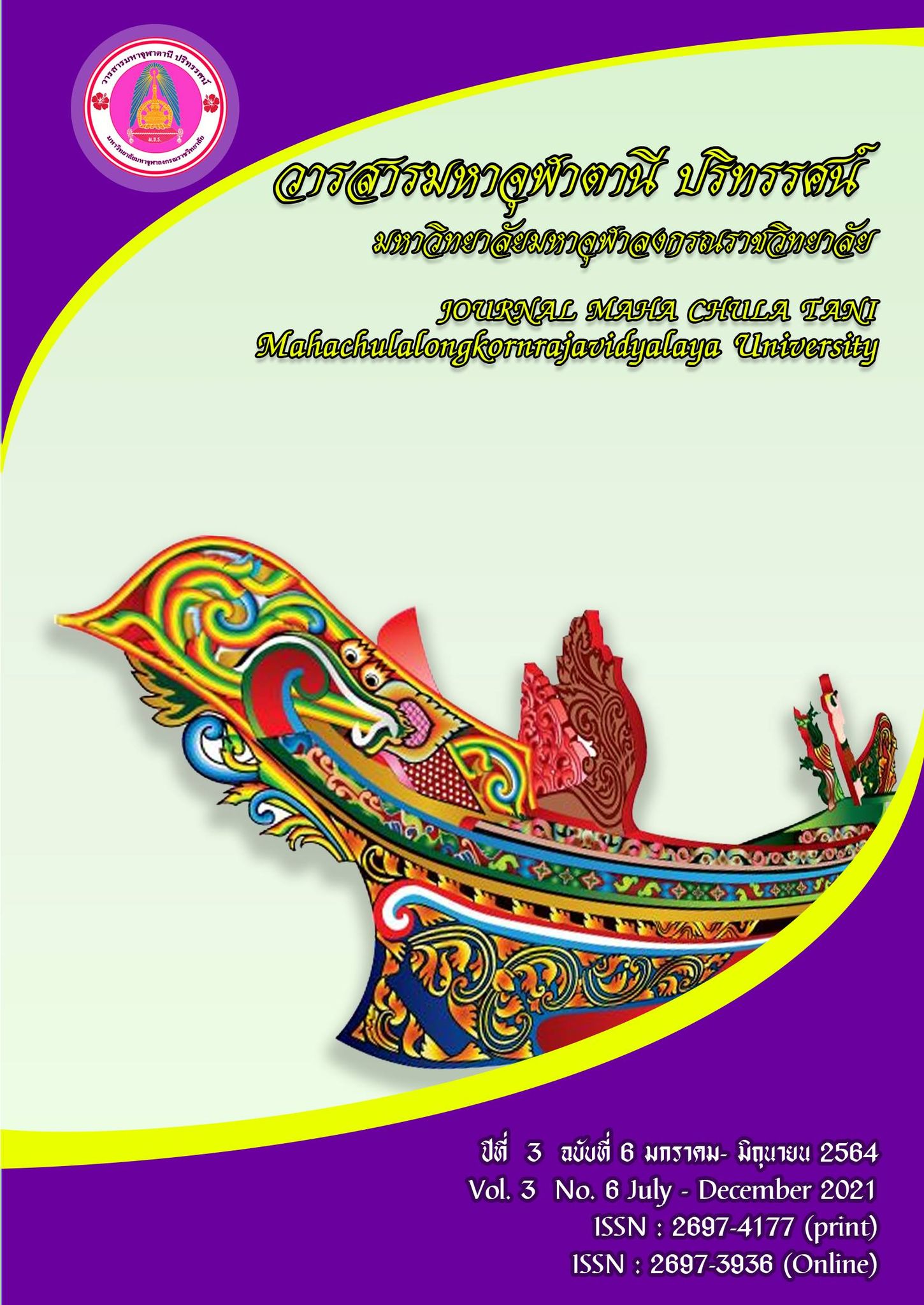The Self-Conduct on Public-Mind of Lower Secondary Students in Educational Opportunity Expansion Schools Under Ubon Ratchathani Primary Educational Service Area Office 5
Main Article Content
Abstract
The objectives of this research were:
1) to study the level of Self-Conduct on Public-Mind of Lower Secondary Students in Educational Opportunity Expansion Schools Under Ubon Ratchathani Primary Educational Service Area Office 5
2) to compare the level of Self-Conduct on Public-Mind of Lower Secondary Students in Educational Opportunity Expansion Schools Under Ubon Ratchathani Primary Educational Service Area Office 5, classifying genders, levels of educational result and nurture, by using a survey research method. The sample for this research were the 304 students in Lower Secondary Students at Educational Opportunity Expansion Schools Under Ubon Ratchathani Primary Educational Service Area Office 5. The tools used in the research were questionnaires with total frequency of .95. The data was analyzed by percentage, mean and standard deviation (S.D.), T-test (Independent sample) and F-test (One-Way ANOVA).
The research findings were as follows:
The research findings were as follows ot The Self-Conduct on Public-Mind of was totally in a high level ( = 3.72) and considering each aspect, it was found that one aspect of the average value was at a middle level, the others were at the highest level. Sorting the order from the highest value to the lowest was that helping the parents was at 4.05, volunteering for social working with physical, mental and intellectual power was at 3.90, participation in the activities of school, community and society was at 3.63, taking care of public property and environment was at 3.62, sharing or providing an opportunity for other people to use the public property was at 3.61 and cooperation in solving problem or creating good things according to occurring situations was at 3.48.
The research findings were as follows to The comparison of different students’ status who had different levels of public mind was found that those who were different in gender, educational result and nurture had the different levels of self-conduct on public mind in total and each aspect with statistical significance at the level .05.
Article Details

This work is licensed under a Creative Commons Attribution-NonCommercial-NoDerivatives 4.0 International License.


